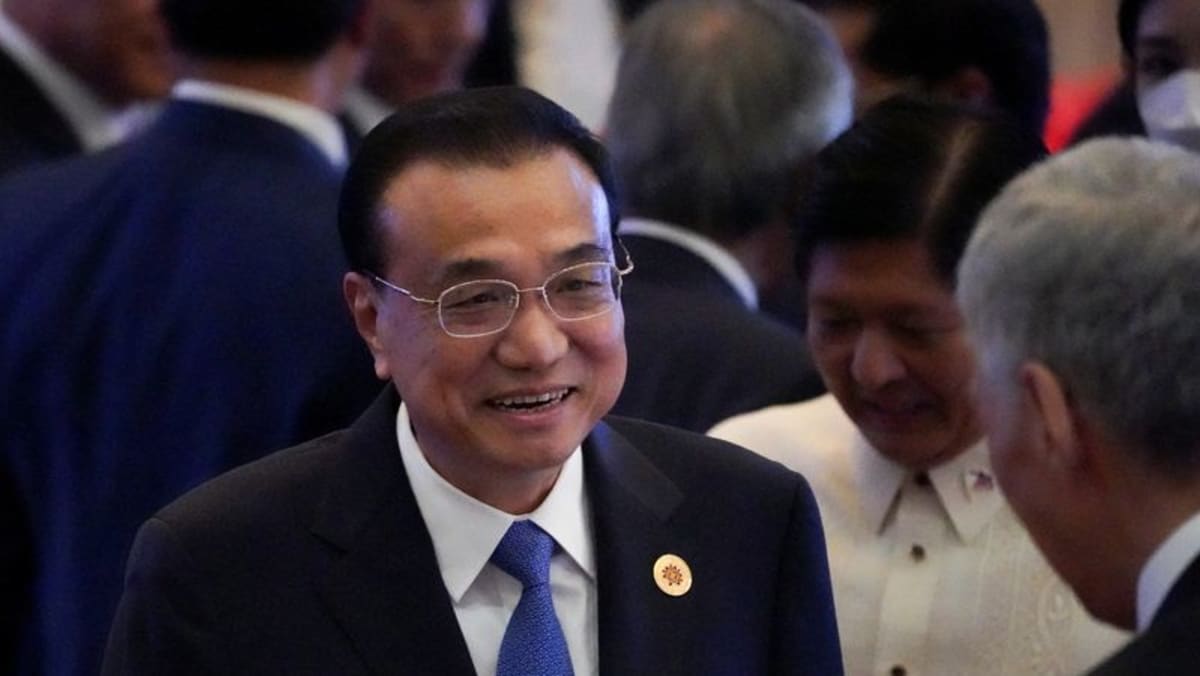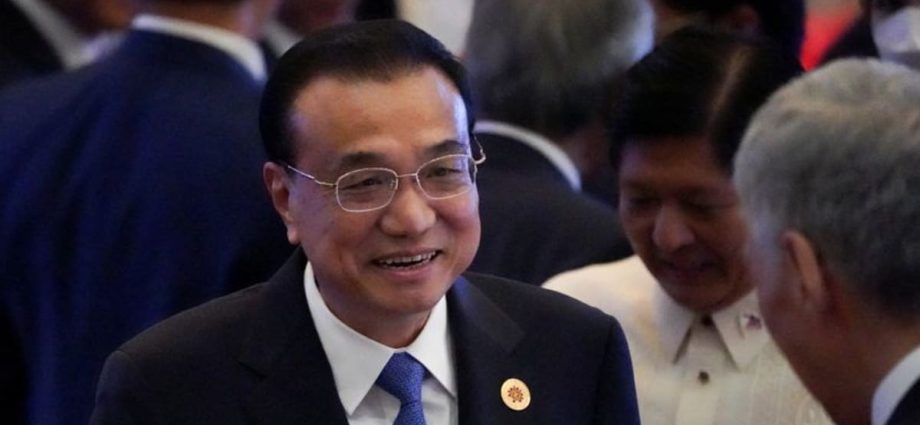
BEIJING: After a decade in charge of China’s State Council, Premier Li Keqiang is set to deliver his final government work report when the country’s top legislature convenes for its annual political meetings this weekend, before bowing out of politics.
Having reached his two-term limit, Mr Li confirmed last year he would be stepping down as premier.
This will also mark his departure from China’s governing body, even though the 67-year-old veteran has not yet reached the unofficial retirement age of 68.
Mr Li’s fate was made clear at the Communist Party’s twice-a-decade congress in October last year, when he was left out of the party’s central leadership name list along with others – who like him – had been seen as being from a rival faction to Chinese President Xi Jinping.
Mr Li had once been considered a competitor for the top job, but had fallen out of favour as Mr Xi amassed influence and appointed loyalists to powerful positions by his side.
“One of Li Keqiang’s challenges is about the power consolidation of Xi Jinping over the past few years,” said Dr Chen Gang, assistant director of the National University of Singapore’s East Asian Institute.
“So what Li Keqiang really does is limited, and also the international environment was not very favourable towards his economic governance and foreign policy. Li Keqiang has been facing increasingly limited policy room for manoeuvre.”
INCOMING PREMIER LI QIANG
The Chinese premier typically oversees the country’s economic policy.
But Mr Li’s term was viewed to have been curtailed, as Mr Xi sought to exert more control over the country’s affairs by heading a new leading group that oversaw economic reform.
Analysts said that this may change, with Mr Xi’s close ally Li Qiang poised to become the next premier.
The 63-year-old was formerly Shanghai’s party chief. His career overlapped with Mr Xi’s in Zhejiang province decades ago, when he was Mr Xi’s de facto chief of staff.
Despite criticism surrounding his handling of a chaotic COVID-19 lockdown in Shanghai that led to major disruptions in the province’s economy, he was promoted to the party’s second-highest-ranking official last year.
His lack of experience as vice premier, which had previously been a requirement for those holding the premiership position, is also proving not to be an issue.
Emerging from its strict zero-COVID policy, which Chinese authorities abandoned late last year, the new premier’s plans to reboot the economy will be in the spotlight.
The incoming Mr Li, a trusted confidant of Mr Xi’s, will likely be granted a higher degree of autonomy compared to the outgoing premier as his thinking may prove to be more in line with the top leader, said analysts.
“I think the trust and the confidence between President Xi Jinping and Li Qiang will be very important in making sure that the relations between the Central Committee of the Politburo Standing Committee and the State Council will be seamless,” said Mr Victor Gao, chair professor of Soochow University.
“The coming 10 years will decide whether and how fast the overall size of the Chinese economy (will grow, and if it) will be the largest economy in the world.”
DYNAMICS BETWEEN THE TOP JOBS
However, the dynamics between the nation’s two top leaders could also be a double-edged sword, as Mr Xi’s decisions could be left unchecked, said other observers.
“In the current situation, where growth is the priority for this year, and perhaps next year, coming out of the zero-COVID policy, having Li Qiang as premier is going to make it arguably a bit easier for Xi Jinping to ensure that those policies feed through the system and that’s good for growth,” said Mr Neil Thomas, a senior China analyst at political risk consultancy Eurasia Group.
“But if we see Xi Jinping making poor decisions, (for example) deciding to introduce a new regulatory crackdown, those measures could go further than before and could have a bigger negative impact than before in terms of their effects on markets and economic confidence.”
China’s new premier is taking over at a time when the country is keen to boost its economy and move past the COVID-19 pandemic.
But while a recovery is on the cards, it is also dealing with a slew of challenges both at home and abroad, including an ageing population and low birth rate, its troubled real estate sector and an ongoing technology war with the United States.
Apart from the premiership, other top government posts are also expected to go to those seen as loyal to Mr Xi, after the Chinese leader stacked the party’s top decision-making bodies with his allies during the party congress.
Closely watched roles include the country’s vice premiers and the head of China’s central bank.
The five-yearly personnel reshuffle will be finalised during the annual meetings of the National People’s Congress (NPC) and the Chinese People’s Political Consultative Conference (CPPCC).

